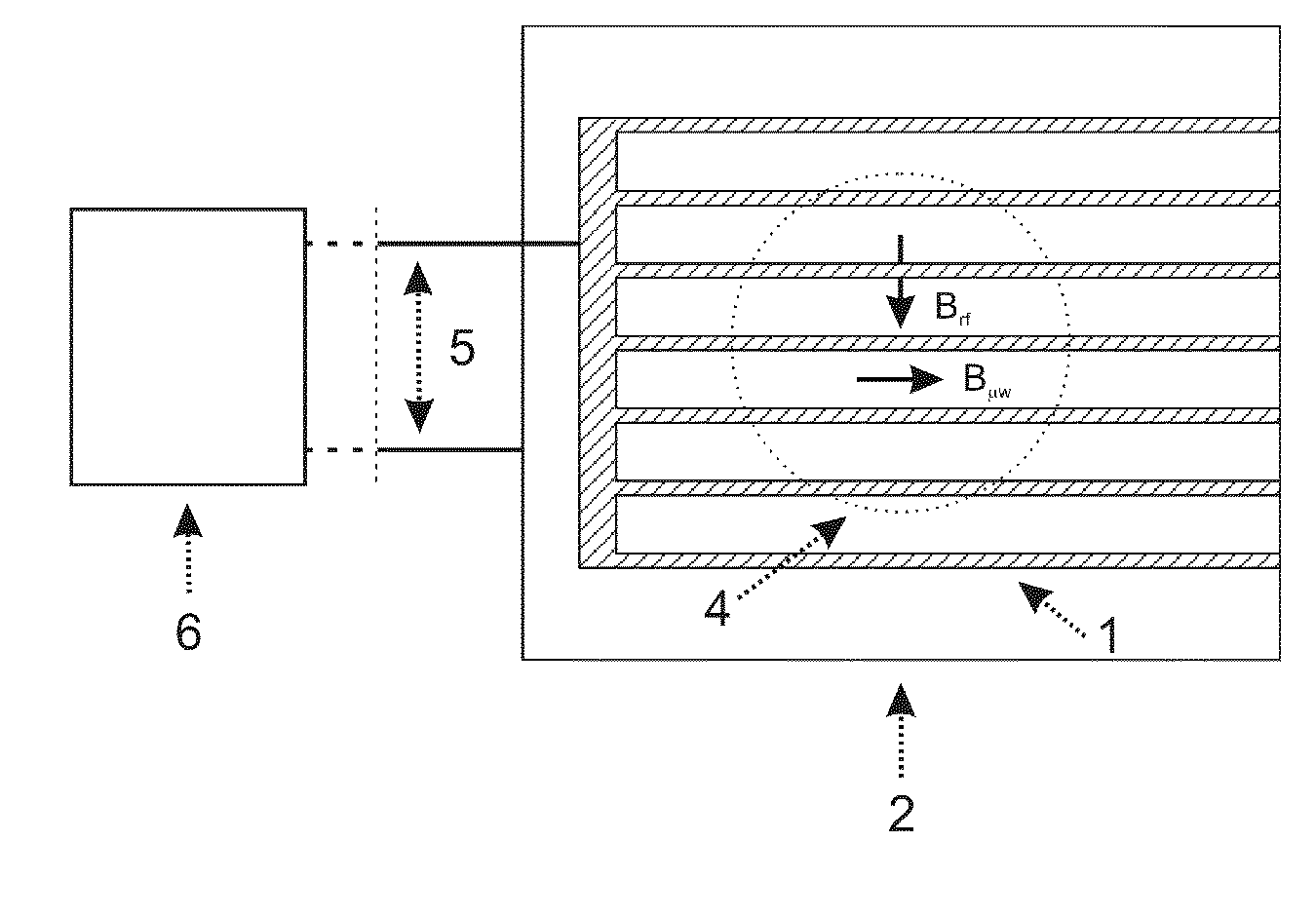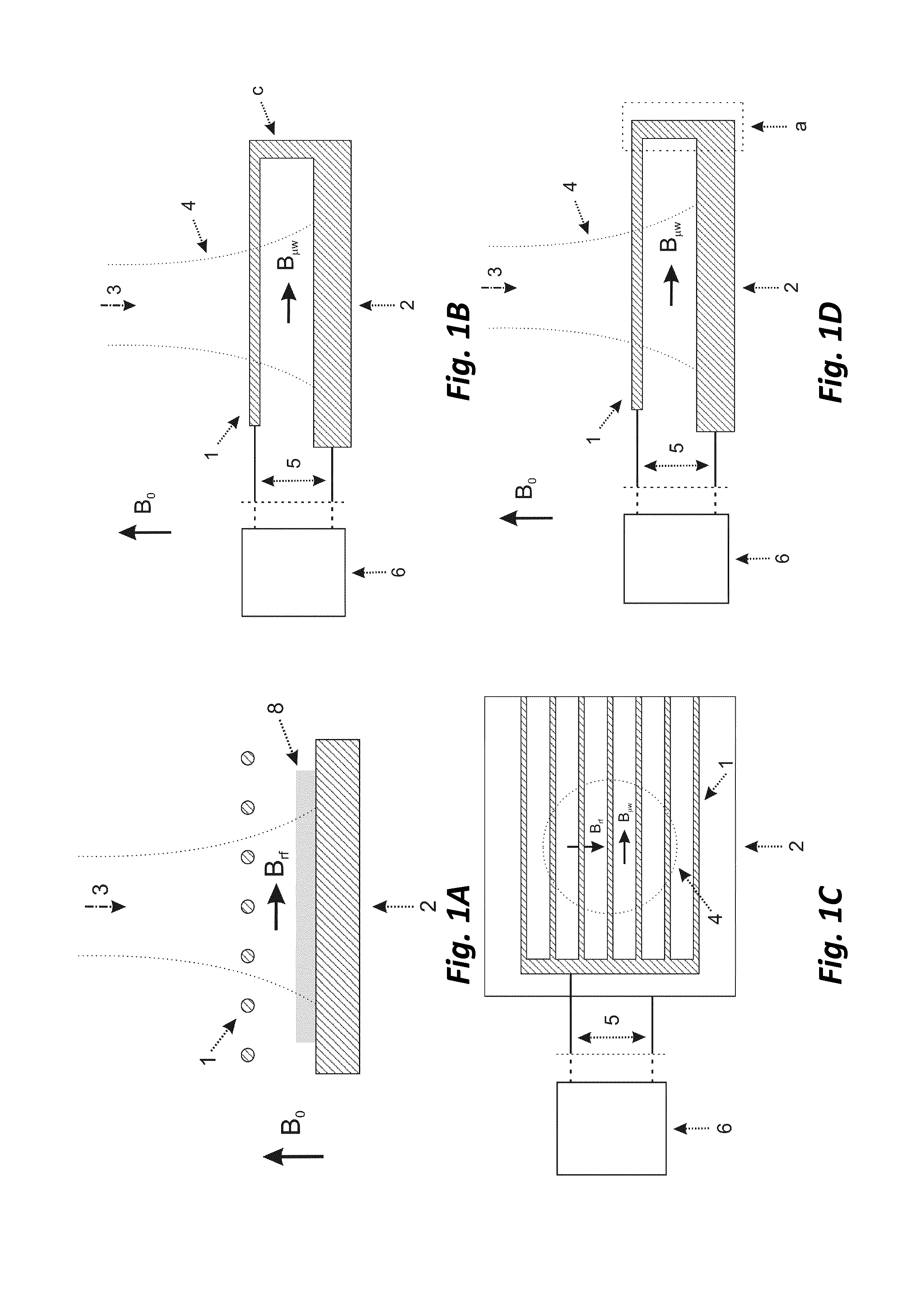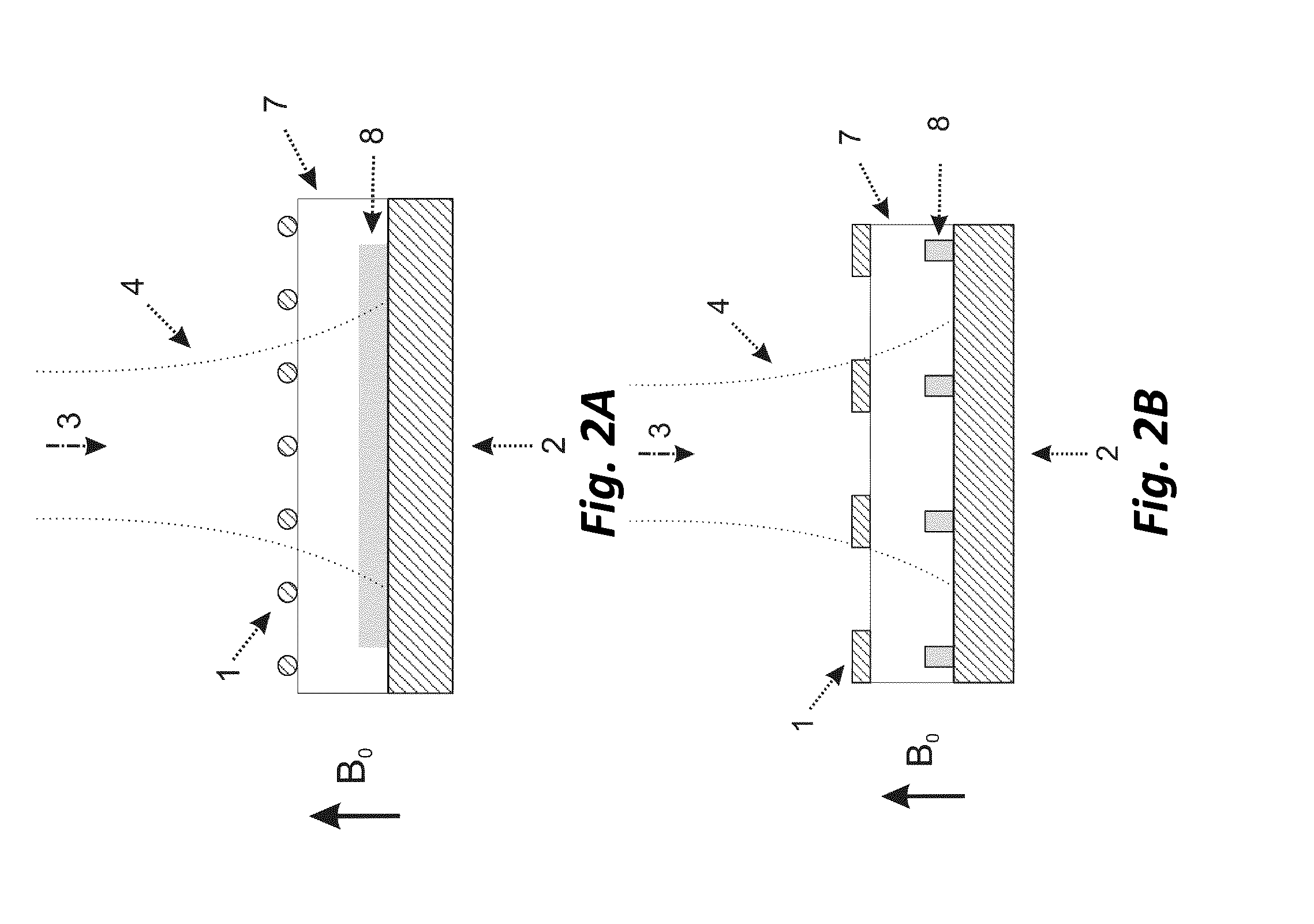Magnetic resonance hyperpolarization and multiple irradiation probe probe head
- Summary
- Abstract
- Description
- Claims
- Application Information
AI Technical Summary
Benefits of technology
Problems solved by technology
Method used
Image
Examples
Embodiment Construction
[0071]In the framework of the above mentioned magnetic resonance techniques, a sample placed in an external static magnetic field B0 is irradiated with electromagnetic waves at frequencies typical of nuclear Zeeman transitions (NMR transitions, corresponding to RF excitation with frequencies up to few GHz) or with frequencies typical of electron Zeeman transitions (EPR transitions, corresponding to MW excitation with frequencies up to few THz). These two kinds of excitation are combined in the Dynamic Nuclear Polarization-like techniques, where said MW excitation is employed with the goal of saturating the electron spin transitions of the paramagnetic species or more generally to modify the related electron spin populations and coherences. The variation of the electron states affects the nuclear spins, whose state is revealed through the NMR techniques (DNP-NMR, DNP-MRI, etc.). A proper application of this double-excitation technique can introduce an enhancement in the NMR signal of...
PUM
 Login to View More
Login to View More Abstract
Description
Claims
Application Information
 Login to View More
Login to View More - R&D
- Intellectual Property
- Life Sciences
- Materials
- Tech Scout
- Unparalleled Data Quality
- Higher Quality Content
- 60% Fewer Hallucinations
Browse by: Latest US Patents, China's latest patents, Technical Efficacy Thesaurus, Application Domain, Technology Topic, Popular Technical Reports.
© 2025 PatSnap. All rights reserved.Legal|Privacy policy|Modern Slavery Act Transparency Statement|Sitemap|About US| Contact US: help@patsnap.com



